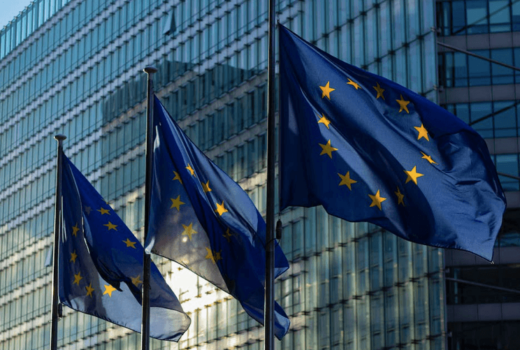Galileo kan de ruimte in
“For some reasons, which I find impossible to grasp, Spain did not go along with a general agreement”, EU transport commissioner Jacques Barrot said on 29 November, after 26 ministers had outvoted their Spanish colleague. Madrid had demanded to host a ground control centre for Galileo – a global network of 30 navigation satellites and ground stations, which is meant to end the EU’s reliance on the US Global Positioning System (GPS). Instead, the Spanish government was offered the project’s only ‘life safety’ centre, designed to help all types of search and rescue services. The centre could eventually carry out the functions of a control centre, if certain conditions are met. So far, only two centres – in Germany and Italy – have qualified for such a status.
“We have reached the point where it was no longer possible to carry on with that situation”, Portuguese transport minister Mario Lino said in response to Spain’s firm opposition to a compromise scenario. He added that “I did not understand what it was they were objecting to…we really listened to Spanish concerns and we think it’s clearly reflected in the text”. Despite the absence of a unanimous EU agreement, the bloc’s biggest ever joint technological project is not expected to be further delayed.
Originally a public-private project, it has already been postponed by five years to 2013, as the private consortium, consisting of eight European firms, could not agree a common commercial position. “We are now going to move on to the implementation phase and to put an end to this period of disturbance that accompanied this process in recent times”, Mr Lino said. According to the newly-adopted industrial plan, the construction of Galileo will be divided into six phases, with each of them having one main investor and several subcontractors – a model which should ensure all member states will be able to bid.
This was “very difficult” to agree, commissioner Barrot said, referring to the need to “reconcile necessary measures of competition and the desire for fair allocation of the construction work of Galileo”. In addition, he pointed out that once up and running, Galileo will “ensure the economic and strategic independence” of the EU, as “special navigation is an indication of power” on the world stage.
Meest Gelezen
Vrouwen houden universiteit draaiende, maar krijgen daarvoor geen waardering
Hbo-docent wil wel rolmodel zijn, maar niet eigen moreel kompas opdringen
Wederom intimidatie van journalisten door universiteit, nu in Delft
‘Waarom het nu niet lukt om medezeggenschap in hbo te versterken’
‘Sluijsmans et al. slaan de plank volledig mis’

